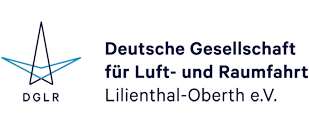DGLR-Publikationsdatenbank - Detailansicht
Autor(en):
D. Hintermayr, S. Kazula
Zusammenfassung:
Electrified propulsion systems powered by hydrogen fuel cells are a promising technology for future, sustainable aircraft. However, operating a fuel cell in an aircraft poses challenges to other components, such as the air inlet system. Not only does the fuel cell have to be supplied with a constant stream of clean air for the cold combustion, but also high amounts of waste heat have to be discarded into the atmosphere by utilizing air liquid heat exchangers. This paper introduces and evaluates different air inlet system options using analytical methods. Inlet concepts are identified by analysing the state of the art. Promising concepts are selected using a qualitative evaluation. The most promising concept is sized for a reference propulsion system. The results of this study highlight the importance of careful air inlet design to ensure reliable operation and acceptable performance of fuel cell-powered aero engines. Performance and sizing data gained from the analytical calculations can serve as a baseline for the preliminary design of air supply systems for fuel cell-powered aircraft. Additionally, the process used in this work can be implemented for inlet systems designed for other engine types. Thereby, this work assists in the development of carbon-neutral air travel.
Veranstaltung:
Deutscher Luft- und Raumfahrtkongress 2023, Stuttgart
Verlag, Ort:
Deutsche Gesellschaft für Luft- und Raumfahrt - Lilienthal-Oberth e.V., Bonn, 2024
Medientyp:
Conference Paper
Sprache:
englisch
Format:
21,0 x 29,7 cm, 11 Seiten
URN:
urn:nbn:de:101:1-2404191237425.410333071361
DOI:
10.25967/610194
Stichworte zum Inhalt:
Air Inlet, Fuel Cell, Electric Flight, Aerodynamics
Verfügbarkeit:
Kommentar:
Zitierform:
Hintermayr, D.; Kazula, S. (2024): Design and Analysis of the Air Inlet System for Fuel Cell-Powered Electric Propulsion Systems in Regional Aircraft. Deutsche Gesellschaft für Luft- und Raumfahrt - Lilienthal-Oberth e.V.. (Text). https://doi.org/10.25967/610194. urn:nbn:de:101:1-2404191237425.410333071361.
Veröffentlicht am:
19.04.2024
